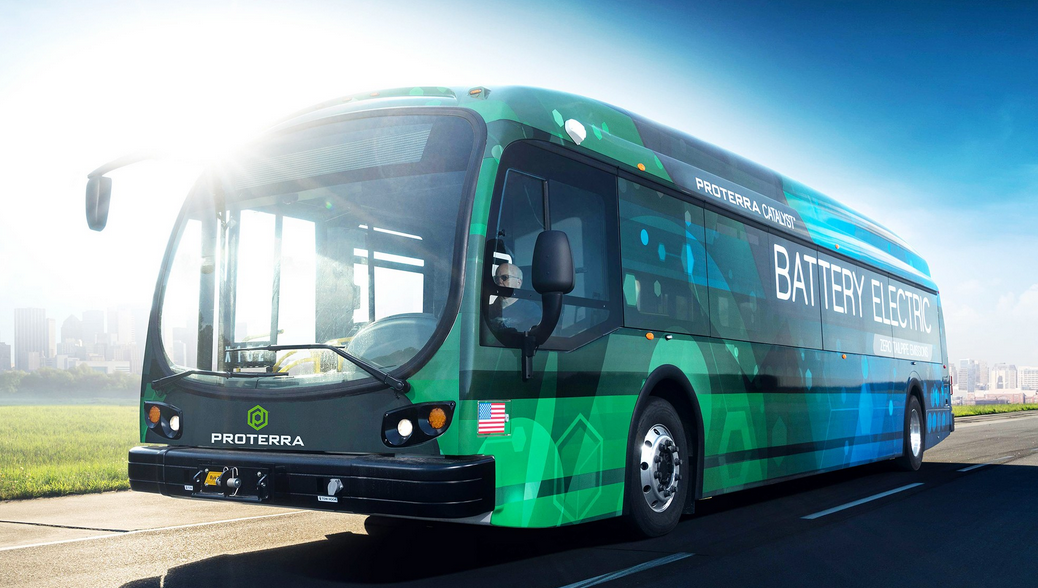Proterra Enters Canadian Market with E-Bus Order from Toronto Transit
Proterra, an innovator in heavy-duty electric transportation, announced that the Toronto Transit Commission (TTC) has ordered ten Proterra Catalyst® E2 buses in support of the transit agency’s goal to convert its entire fleet of 1,926 buses to zero-emission buses by 2040.
Canada has approximately 24,000 public transit buses in circulation, and around 1,000 buses turn over each year, making it a prime market for Proterra to serve as more Canadian cities make zero-emission bus fleet commitments.
The TTC is the most heavily used urban mass transit system in all of Canada, and the third largest in North America, after the New York City Transit Authority and Mexico City Metro. TTC’s bus fleet serves nearly 2,750,000 residents with an average ridership of 253 million per year, and provides mass transit links throughout the broader metropolitan area.
In July of 2017, the City of Toronto’s TransformTO action plan set a target to reduce greenhouse gas (GHG) emissions by 80% by 2050. With 10 Catalyst buses, the City of Toronto will displace more than 4,853,091 liters of diesel over the vehicles’ lifetime, and eliminate over 1,039,000 kg of carbon emissions annually, lowering the associated health risks. In addition to the environmental benefits, the new electric buses also have the potential to save money for the TTC, since they need less energy to operate and require less maintenance. Over their lifetime, the 10 Proterra buses are expected to deliver operational cost savings of more than $5.9 million CAD.
The Proterra Catalyst E2 vehicle has proven its performance in other similar climates such as Worcester Regional Transit Authority in Massachusetts and Park City Transit in Utah. The Catalyst E2 is ideal for TTC driving conditions because of its purpose-built electric bus design, corrosion-resistant composite body, energy-dense batteries and efficient drivetrain. The vehicle’s performance remains reliable through extreme weather because its E2 battery system includes active thermal management, which monitors battery cell temperature and voltage, with more than 70 sensors capturing 160 different diagnostic data streams from each battery pack. Unlike some electric bus technologies, the Proterra battery integrates thermal management and proprietary state of charge algorithms that enable long life, rapid charge times and operation in virtually any climate.
The battery-electric buses will go into service in 2019 and operate out of the Mount Dennis Bus garage, serving routes nearby. With these Proterra battery-electric buses on the road, the TTC’s riders will enjoy the combined benefits of zero-emission mass transit technology, improved community air quality, and a modern, accessible electric vehicle experience.
Category: Featured, General Update, Green, News











